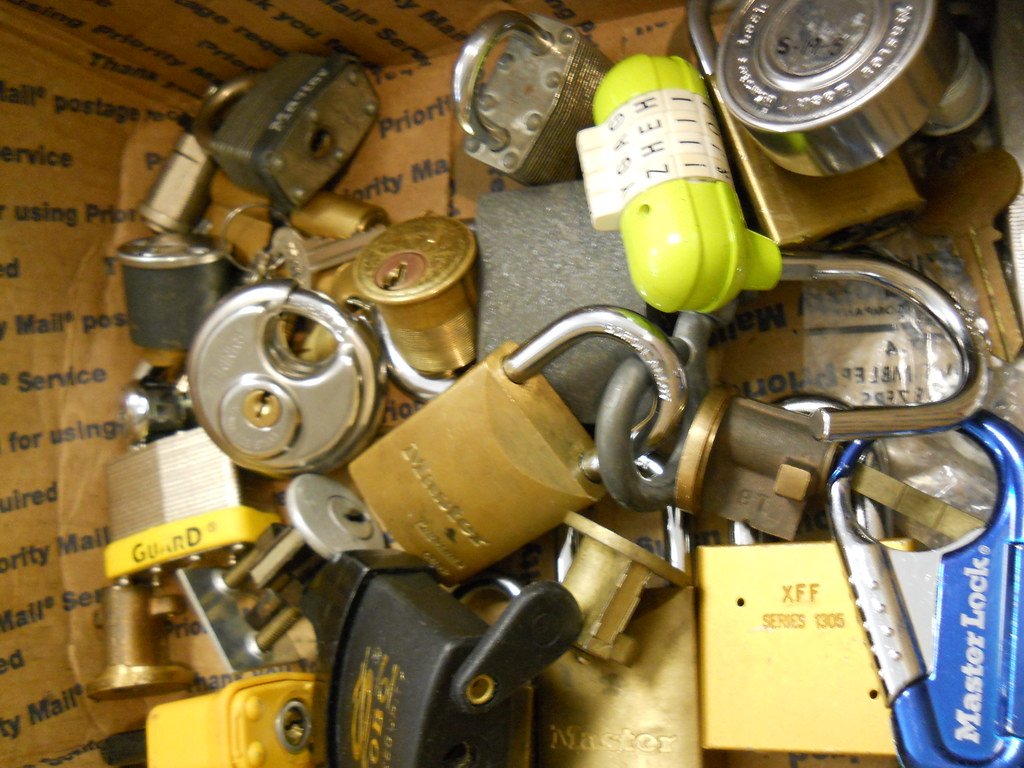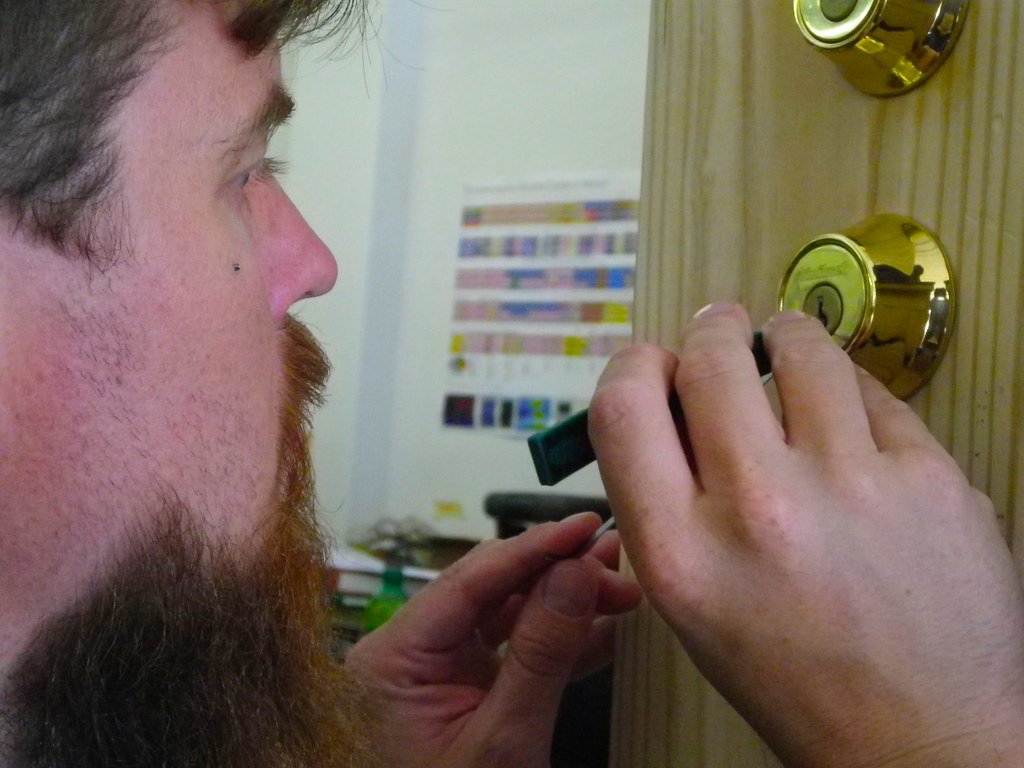Locksport, a fascinating world where enthusiasts indulge in the art of manipulating locks, has captivated the hearts and minds of many. From intricate padlocks to ancient mechanisms guarding hidden treasures, this hobby embraces creativity, precision, and the thrill of overcoming mechanical puzzles. However, beyond the excitement lie essential safety considerations that every beginner in locksport should be aware of. Mastering the art of lock picking requires not only skill but also a profound respect for the craft, ensuring that this journey into the world of locks remains a safe and enlightening adventure. So, before embarking on this challenging pursuit, it is crucial to familiarize oneself with a range of locksport-safety tips that will protect both the practitioner and the integrity of the lock. In this article, we will delve into the key aspects of locksport safety, equipping novices with the knowledge they need to embrace this fascinating world responsibly.
Table of Contents
- Introduction: Understanding and Practicing Locksport Safely
- Navigating Legal and Ethical Boundaries: A Beginner’s Guide to Responsible Locksport
- Essential Tools and Equipment: Ensuring Safety in the Locksport World
- Mastering Lock Picking Techniques: Precautions and Best Practices
- Locksport Community: Building Trust and Exchanging Knowledge for a Secure Environment
- Q&A
- In Conclusion

Introduction: Understanding and Practicing Locksport Safely
Welcome to the fascinating world of lock picking! In this section, we will explore the art of locksport, its intricate techniques, and emphasize the importance of practicing it safely. Locksport is a recreational activity that involves the manipulation of locks for both educational and competitive purposes.
Lock picking can be seen as a puzzle, an enjoyable challenge that stimulates creativity and problem-solving skills. However, it is crucial to approach locksport with responsibility and respect for both the legal and ethical boundaries. As you embark on this journey, it is essential to remember that locksport should only be practiced on locks you own or have permission to use.
In the following pages, we will delve into various lock picking methods, from basic pin tumbler locks to more complex mechanisms. Unlocking the secrets held within these metal chambers requires patience, dexterity, and a thorough understanding of the inner workings of locks. Throughout our exploration, we will also provide tips on securing your own locks and protecting your belongings from potential vulnerabilities.
So, grab your tension wrench and pick, let’s dive into the captivating realm of locksport, where curiosity meets skill and safety holds the key!
Key Points:
- Locksport involves the manipulation of locks for educational and competitive purposes.
- Lock picking should only be practiced on locks you own or have permission to use.
- Understanding lock mechanisms and methods is essential for successful locksport.
- Proper security measures should be taken to protect your own locks and belongings.

Navigating Legal and Ethical Boundaries: A Beginner’s Guide to Responsible Locksport
About Locksport
Locksport is the recreational activity of legally picking, manipulating, and studying the mechanisms of locks. It involves a combination of technical skill, knowledge, and curiosity about the inner workings of locks and how they can be bypassed. While Locksport can be an exciting and educational hobby, it is essential to be aware of the legal and ethical boundaries that come with it.
Legal Considerations
- Know your local laws: Before engaging in Locksport, take the time to research the laws and regulations regarding lock picking and possession of lock-picking tools in your jurisdiction. Laws can vary from one place to another, so understanding the regulations will help ensure that you are acting within the boundaries of the law.
- Obtain consent: It is crucial to always seek proper authorization before attempting to pick a lock. Picking locks without consent is illegal and unethical. Always use your skills responsibly and obtain permission from the owner of the lock or seek opportunities to practice in controlled environments such as lock picking workshops or events.
- Respect private property: Locksport should never be used to gain unauthorized access to someone else’s property. Always remember to respect the boundaries and privacy of others. Locksport is about developing skills and knowledge, not engaging in illegal activities.
Ethics in Locksport
- Share knowledge responsibly: While learning and sharing information is a cornerstone of Locksport, it is important to be mindful of what we share and whom we share it with. Avoid disseminating lock-picking techniques or information to individuals who may use it for unlawful purposes.
- Community engagement: Engage with the Locksport community to learn from experienced lock pickers who can guide you in navigating the legal and ethical aspects of the hobby. Joining local Locksport groups, attending workshops, and participating in online forums can provide you with valuable insights, mentorship, and a network of like-minded individuals.
- Continual learning: Ethical locksmithing and responsible Locksport involve an ongoing commitment to expand knowledge, learn new skills, and stay updated on legal developments. Stay informed about changes in lock technology, security, and regulations to ensure your locksmithing practices remain within the legal and ethical boundaries.

Essential Tools and Equipment: Ensuring Safety in the Locksport World
When it comes to delving into the fascinating realm of locksport, having the right tools and equipment not only ensures success but also promotes safety. Locksport enthusiasts understand the importance of employing the proper gear to ensure both the smooth operation and personal security within this captivating hobby.
One of the most crucial tools every serious locksporter must possess is a comprehensive lock pick set. These sets are meticulously crafted to cater to a wide range of lock mechanisms, guaranteeing versatility and effectiveness in picking even the trickiest locks. Additionally, investing in high-quality tension tools is essential as they provide the necessary support and control during the delicate picking process.
To further enhance safety measures, lock enthusiasts utilize a variety of supplemental equipment. A highly recommended addition to your locksport arsenal is a pick holder or organizer. This handy tool not only keeps your picks organized and easily accessible but also prevents accidental injuries by securing them in one place. Gloves designed specifically for locksport can offer additional protection and prevent any potential harm from sharp edges or pinching mechanisms. Furthermore, having a trusty lock pick case or pouch ensures secure transportation and storage of your valuable tools, preventing loss or damage.
Mastering Lock Picking Techniques: Precautions and Best Practices
When delving into the world of lock picking, it is important to approach the craft with caution and adhere to best practices. The ability to successfully manipulate locks requires both skill and responsibility. Here are some key precautions and best practices to keep in mind:
- Legal Considerations: Before embarking on your lock picking journey, familiarize yourself with the laws and regulations in your jurisdiction. Ensure that lock picking is legal and that you are not inadvertently engaging in any illegal activities.
- Ethical Use: Lock picking skills should always be used responsibly and ethically. It is essential to respect others’ privacy and property. Only practice lock picking on locks that you own or have obtained permission to manipulate.
- Safety First: Always prioritize your safety when engaging in lock picking. Use appropriate safety equipment such as gloves and goggles to protect yourself from any potential accidents. Remember, it is better to be safe than sorry.
Furthermore, mastering lock picking techniques involves dedication, patience, and continuous learning. Practice regularly to hone your skills, and never attempt to pick locks that are currently in use or that you rely on for security. Always strive to expand your knowledge through reputable sources and connect with experienced lock pickers to gain insights and refine your techniques.
Locksport Community: Building Trust and Exchanging Knowledge for a Secure Environment
The Locksport Community is a rich network of individuals passionate about locks, keys, and security. It’s a space where enthusiasts come together to share their knowledge, experiences, and techniques in a safe and supportive environment. Whether you are a beginner or an advanced lock-picker, this community offers a unique platform for building trust and exchanging ideas that ultimately contribute to a more secure world.
Within this community, you’ll find a treasure trove of expertise waiting to be explored. Members freely share tips, tricks, and best practices, nurturing each other’s growth as lock enthusiasts. From discussing intricate lock mechanisms to exploring creative solutions for common security challenges, this community is dedicated to fostering a culture of knowledge exchange to benefit all.
What makes the Locksport Community special is its emphasis on trust-building. Members hold mutual respect for one another, understanding that ethical use and responsible sharing of lock-picking skills are paramount. They value the importance of locksmith ethics and ensure that their knowledge is used for educational purposes, lock sport competitions, and improving security standards.
So whether you’re an aspiring locksmith, a hobbyist, or simply curious about the world of locksport, join our community today. By participating and sharing your expertise, you’ll not only enhance your skills but also contribute to the collective knowledge that helps create a more secure environment for everyone.
Q&A
1. What is locksport and why is it important to learn about it?
Locksport is the recreational activity of studying and practicing lockpicking as a hobby. It’s important to learn about it because it helps you understand the vulnerabilities of locks and improve your own security measures.
2. Are there any safety risks associated with locksport?
Locksport, like any activity involving tools, carries some risks. However, as long as you practice in a safe and controlled environment, follow ethical guidelines, and only work on locks you own or have explicit permission to pick, the risks can be minimized.
3. How can beginners ensure they are picking locks legally?
Beginners should always obtain permission from the owner before attempting to pick a lock. It is also essential to research and abide by local laws and regulations regarding lockpicking, as legality can vary depending on the jurisdiction.
4. What safety gear or tools should beginners have when practicing locksport?
While not mandatory, wearing safety glasses or goggles can protect your eyes from accidental debris or lock parts that might fly off during the picking process. A quality set of lockpicks and tension wrenches, along with a practice lock, are essential tools for beginners.
5. How should beginners approach practicing locksport?
Beginners should start with simple locks and progress gradually to more complex ones. Patience and practice are key. It’s important to respect the locks and never force them open, as it may damage the lock and hinder your learning progress.
6. Are there any ethical considerations beginners should keep in mind?
Beginners must always act responsibly and ethically. Never attempt to pick a lock that is in active use, as it can compromise someone’s security. Locksport should be regarded as a recreational and educational activity, rather than a means for illegal activities.
7. Can locksport skills be utilized for good purposes?
Absolutely! Many locksport enthusiasts use their skills to identify vulnerabilities in security systems and improve them. Locksmiths, security professionals, and law enforcement agencies benefit from the knowledge and insights gained through locksport.
8. Are there any online resources or communities for locksport beginners?
Yes, there are several online forums, websites, and social media groups dedicated to locksport. These platforms offer guidance, tutorials, and a supportive community to help beginners learn and grow their skills in a safe and responsible manner.
9. How can locksport beginners avoid getting locked out of their own homes?
To avoid getting locked out, beginners can practice on non-essential locks, such as practice locks or spare locks. This way, there’s no risk of accidentally damaging a lock that’s critical for everyday use. Additionally, always have a spare key handy or share a key with a trusted individual.
10. Is locksport only for technical experts or locksmiths?
Not at all! Locksport is meant for anyone interested in understanding locks and security systems better. It’s a hobby that can be pursued by people of various backgrounds and skill levels. All it requires is curiosity, patience, and a commitment to ethical practice.
In Conclusion
As we bid adieu to this voyage into the captivating realm of locksport safety, remember that every new beginning needs a firm groundwork to flourish. As a beginner, arming yourself with knowledge and understanding is the key to unlocking success in this exhilarating pursuit.
Our journey has granted us a glimpse into the world of locksport, unraveling the mysteries that lie within each challenging lock. We’ve explored the importance of ethical behavior, emphasizing the utmost need to respect and comply with local laws and regulations. Always remember, the art of locksport lies in the mastery of skills and not in the intent to breach security.
With safety reigning supreme, we’ve uncovered invaluable tips to protect both ourselves and the locks we so ardently engage with. Never underestimate the value of appropriate tools, sturdy equipment, and protective gear. They are the armor that shields us from harm, ensuring we can confidently navigate our way through this captivating maze.
From the intricacies of lock manipulation to the finesse of picking, our journey has just begun. So, as you embark on your own personal odyssey, embody the spirit of curiosity, but do so responsibly. Seek wisdom from seasoned experts, engage in open dialogue with fellow enthusiasts, and continuously evolve as a responsible member of the locksport community.
But above all, always remember the cardinal rule of locksport: consent and authorization. Unleash your skills and unravel the puzzles embedded within locks, only when you have obtained the necessary permission to do so.
With these safety tips in your arsenal, you’re now equipped for the thrilling voyage that lies ahead. The realm of locksport awaits, beckoning you to explore, learn, and conquer. May your journey be filled with challenges that test your mettle, victories that inspire, and most importantly, a steadfast commitment to safety and ethical practice.
Farewell, and may the venerated locksmiths of old guide you on your path to mastery!
As an affiliate, my content may feature links to products I personally use and recommend. By taking action, like subscribing or making a purchase, you’ll be supporting my work and fueling my taco cravings at the same time. Win-win, right?
Want to read more? Check out our Affiliate Disclosure page.